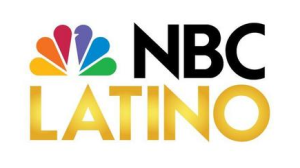Fast food workers strike, demand better wages

 By Adriana Maestas, NBCLatino
By Adriana Maestas, NBCLatino
On Thursday, labor organizers held a series of strikes across the country at McDonald’s and Burger King restaurants demanding a pay increase to $15 an hour. The current federal minimum wage is $7.25, although in some states the rate is slightly higher.
Fast-food is a $200 billion industry in the U.S., and organizers have been targeting the large employers because workers are not paid a “living wage.” A pay rate of $15 an hour would be about $31,000 a year for a full-time employee.
According to the Bureau of Labor Statistics for 2012, 24.9% of the workers in restaurants in the leisure and hospitality industry were Latino. An analysis by the Center for Economic and Policy Research released this month shows that between 2010 – 2012 19.9% of fast-food workers in the U.S. age 20 and over were Latino.
President Obama has indicated earlier this year that he wants to raise the federal minimum wage to $9 an hour. Labor Secretary Tom Perez told the Associated Press that he’s part of the President’s effort to raise the minimum wage, although he declined to comment on the workers’ demand of an increase to $15 an hour.
Perez told the AP, “For all too many people working minimum wage jobs, the rungs on the ladder of opportunity are feeling further and further apart.”
Earlier this month, Ana Guajardo, the executive director of Centro de Trabajadores in Chicago,told NBC Latino, “$8.25 is not enough. The price of food goes up. The price of living increases drastically, but salaries are not increasing.”
On average, fast-food employees only work 24 hours per week at a wage of $8.94 an hour. This puts the yearly income for the average fast-food employee at about $10,300, assuming that one works all year round. Since most of these jobs come without benefits, time taken off for being sick or for caring for a family member can mean a smaller paycheck for the typical worker.
Conservatives oppose raising the minimum wage, arguing that the market should determine the wages not the government.
In February, Senator Marco Rubio (R-Florida) told the press, “We all support — I certainly do — having more taxpayers, meaning more people who are employed. And I want people to make a lot more than $9 — $9 is not enough. The problem is you can’t do that by mandating it in the minimum wage laws. Minimum wage laws have never worked in terms of having the middle class attain more prosperity.”
A recent report by the Economic Policy Institute shows that a minimum wage increase would reduce employee turnover, which is costly to businesses, and would ease wage inequality. Additionally, Latinos would constitute almost a quarter of the affected workers to be impacted by an increase in the minimum wage to $10.10. Currently, Latinos are 16% of the overall U.S. workforce.
This article was first published in NBCLatino.
[Photo by Chris Dilts]
